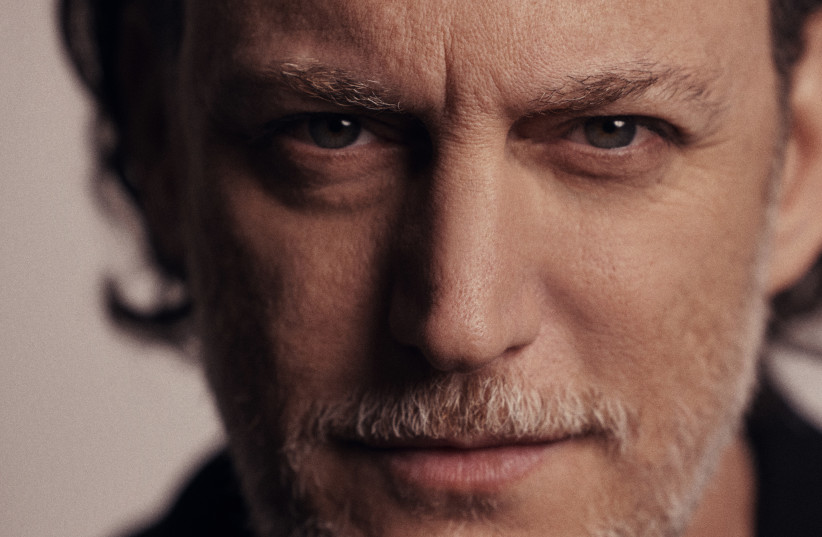The myth of Orpheus and Eurydice, as imagined by composer Christoph Willibald Gluck for his groundbreaking 1762 opera, will return to the Israeli Opera next Monday with a fresh vision by Yehezkel Lazarov, making his debut as an opera director in Orfeo ed Euridice.
“An artist is always going through a process of tearing things down and rebuilding them. In my research, I wanted to reach the genetic code of this work, eventually focusing on voice and how important it is,” Lazarov recently told The Jerusalem Post.
The bare bones of the myth are as follows. Orpheus is separated from Eurydice by her death. A musician unlike any other, he descends into hell to find her and bring her back to the land of the living. The powers which govern the undead allow this under one condition, he must not look back to see if she follows him up. If he does, she will vanish forever: similar to the biblical story of Lot and his wife.
Why does he turn his head to look? “An artist has to dismantle this pact with the devil,” Lazarov told the Post. “Orpheus is a singer; he rescued Eurydice with the power of song.”
When Claudio Monteverdi presented L’Orfeo in 1607, he began Italian opera. During Possente Spirto, his version of Orpheus attempts to convince hell’s guardian to let him pass. All this singing puts Charon to sleep, and the artist slips by him.

When Gluck began tinkering with the myth a century and a half later, he presented a greater degree of idealism. After the furies hear Gluck’s Orpheus sing “Deh! placatevi con me” (Oh! calm down with me), they are so moved by his sweet voice that they let him through. In this production, counter tenors Nicholas Tamagna and Jan Jakub Monowid alternate inhabiting the role.
“I tell a realistic story within a surreal world,” Lazarov shared. “The anatomy of the human voice has great importance in this production. We get to see the singers perform while undergoing an MRI scan; sound frequency wraps this entire production.”
"Our is not a 'happy ending' kind of moment."
GLUCK SUGGESTED to the audience of his days the idea of noble simplicity, to discover human emotions in classical scenarios, like the Greek myths, without the distraction of extravagant vocal display common in the Opera seria of that age. The result was stunning – when Orfeo ed Euridice was performed in Paris, people wept.
The Parisian version, performed in 1774, also has a Deus ex machine ending. The god of love appears and revives Eurydice despite Orpheus violating the terms of the deal. In this production, the earlier, tragic ending, was selected.
“I do not feel that during a time when we are all undergoing a collective trauma, that it is my place to offer facile hope,” Lazarov pointed out: “Ours is not a ‘happy ending’ kind of moment.”
When the opera was performed during the 2002 Kfar Blum music festival, audience members were asked to move from the concert hall into a disused packing factory – mimicking the journey Orpheus takes into another realm. Soprano Revital Raviv shone in the role of Euridice, despite the intense heat and difficult conditions, gaining heaps of praise. In this production, Alla Vasilevitsky and Shaked Strul will descend to hell and back – but remain in the opera hall at all times.
A decade after the Kfar Blum production, Polish director Mariusz Treliński was invited to the Israeli Opera to offer his vision of the myth.
Rather than losing his true love to a random snakebite, his Orpheus focuses on his artistic mission to such an extent that Euridice feels abandoned.
In her despair, she takes her own life, which triggers the journey to the world beyond. So instead of a heroic man who uses art to heal, this version presents a man who destroys the person he loves due to his unchecked inner drive.
For Lazarov, healing is the entire point of this production.
“Every object in this world emits a frequency,” he suggested. “This opera touches the hot lava beneath all things.”
Orfeo ed Euridice by Christoph Willibald Gluck will premiere at the Israeli Opera on Monday, April 8, at 7:30 p.m. with more shows offered until Friday, April 19 at 1 p.m. Ticket prices range between NIS 195 to 455. Sung in Italian with English and Hebrew titles. 80 minutes, no intermission. Call (03) 692-7777 for bookings. The Israeli Opera, 19 Shaul Hamelech St., Tel Aviv.
